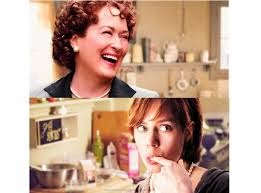I am sitting in my upstairs apartment in the dead of summer in Florida. At 11:30 at night, it is still 85 degrees outside. My apartment is roughly 2 degrees warmer. The ceiling fan whirs and I keep the lighting to a minimum. Sitting on the little sun porch, I am illuminated only by my computer screen and the string of star twinkle lights I affixed to the wall. This affords just enough light for me to see the beads of sweat on my chest and arms. I feel the trickles drip down my skin between my breasts, as my blousy, sleeveless nightgown does nothing to absorb any of the perspiration. I refrain from using my window air conditioner. It wouldn’t reach the sun porch, anyway. I like the heat. I am in my personal steam room. Mostly, though, I feel like I’m in a southern, old-timey movie where the characters live forever lubricated. It looks sexy on screen, but I’m really just a sweaty mess, drinking my cold beer and shifting in my seat so as not to stick to the chair.
I love movies set in the South. I feel like the characters are stronger somehow, subconsciously working to assert themselves when they have the legacy of slavery and stupidity to deal with. I love when the farm daughters, as in Man In the Moon, sleep on the windy porch during the summer months just to get some relief from the weighted, hot nights. The sisters talk to each other well into the night, just like girls always do during sleep overs—whatever age they may be. I love when, in A Time to Kill, Matthew McConaughey’s character comes home from lawyering all day to find his hot and sticky wife, Ashley Judd, scraping at the floor of their big fixer-upper farmhouse. No, they never would simply come home and veg out in front of the t.v. They have work to do, after all. And no fans or air conditioners in sight. No sir. They are down and dirty and sweaty southerners. They are hot.
Come to think of it, Ashley Judd is really a staple of southern, sweaty characters in movies. In Divine Secrets of the Ya Ya Sisterhood (which is a really good book but a terrible movie…i.e. fantastic guilty pleasure movie…with lots of drippy Southern accents and nostalgia for drunk moms and superb summer swimming holes), Judd and her friends hang out in an upstairs room of a beautiful plantation house in their skivvies, complaining with buttery southern drawls how hot and sweaty they are. Now that I actually live in an upstairs room in the South, I completely understand their malaise on a whole new level. I, too, play my record player while I lie on the bed, praying for someone to “wring me out.”
Why this love? Why this infatuation with the stinky, sweaty, southern characters? I guess I just feel more alive when my body’s working overtime to compensate for this spike in temperature. I spend lots of (too much) time in my head. Feeling feverish in my body reminds me I am more than just my thoughts. My body is mine, too. It’s here; it’s hot; so am I.








